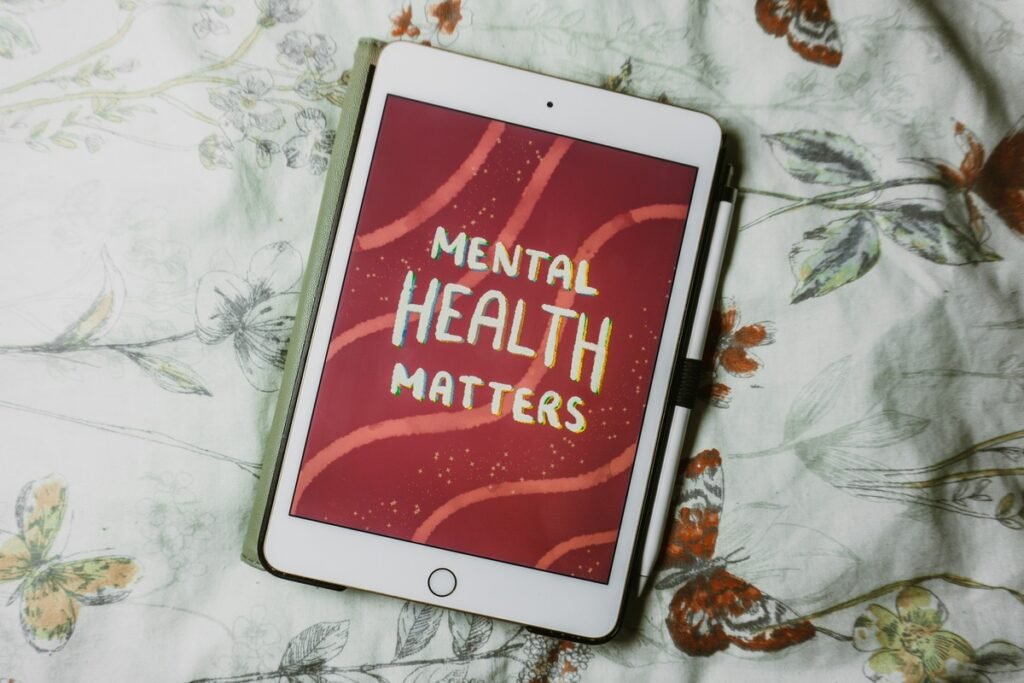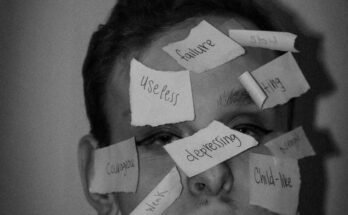A psychiatric nurse practitioner (PMHNP) is an advanced practice registered nurse (APRN) trained through special education and training in mental health disorders to diagnose, offer treatment, and prescribe medication.After earning a four-year nursing degree, they complete advanced graduate studies like a Master of Science in Nursing degree or a Doctor of Nursing qualification.Across all 50 states, psychiatric nurse practitioners perform duties autonomously, helping patients similarly to psychiatrists.
The role of psychiatric providers in psychiatric care includes prescribing medication and understanding the difference compared to therapists or a psychiatrist.Selecting a mental health provider involves considering factors like accepting new patients, experience, insurance, and matching similar needs.Qualified nurse practitioners focus on medication management, providing essential support for those needing continuous mental health services.
Who is a Psychiatric Nurse Practitioner?

A psychiatric-mental health nurse practitioner (PMHNP) is an advanced practice registered nurse (APRN) who has completed additional education and training to help people with mental health disorders and mental health issues. They assess, work on diagnosing and treating patients in a confidential and safe environment, often stepping in due to national shortages of psychiatric providers and mental health experts. A PMHNP can also initiate talk therapy to help patients feel better, providing complete care for emotional and psychiatric needs.
What Does a Psychiatric Nurse Practitioner Do?
Psychiatric nurse practitioners play a big role in mental health care by helping patients who struggle with psychiatric disorders, including depression, anxiety, bipolar disorder, and substance abuse. They evaluate, diagnose, and treat people with a family history or potential risk of emotional disorders and behavioral disorders. Through assessing, ordering and interpreting diagnostic testing, they carefully create a plan to support each patient. Along with providing psychotherapy to individuals and groups, psychiatric NPs work on prescribing, managing medications, referring for ongoing care, and monitoring treatment outcomes. Their scope of practice includes everything from psychotherapy to medication management, ensuring full support for lasting recovery.
- Psychiatric nurse practitioners help by assessing, diagnosing, and creating treatment plans for patients with different psychiatric disorders.
- They perform providing psychotherapy to both individuals and groups, supporting emotional and mental well-being.
- Their role also covers ordering and interpreting diagnostic testing, prescribing, managing medications, and monitoring treatment outcomes for effective mental health care.
Can a Psychiatric Nurse Practitioner Prescribe Medication?

Psychiatric nurse practitioners have the ability to prescribe medications depending on their scope of practice and state regulations. In 21 states and the District of Columbia, a psych NP can prescribe medication without needing a collaborating physician, while in all 50 states, they have some form of prescription privileges. These laws are checked and updated every year to make sure nurse practitioners can continue providing safe and effective care.
Can Mental Health Nurses Prescribe Antidepressants?
Healthcare professionals like a doctor (GP), psychiatrist, and specialist nurse prescriber can prescribe antidepressants. However, the ability of mental health nurses to prescribe these medications depends on their specific qualifications and scope of practice.
Can Mental Health Nurses Give Medication?
Mental health nurses are trained professionals with a specialty in mental health. They can administer injections and give medication as prescribed by a doctor in settings like a clinic, office, or hospital, including for inpatient care.
What Type of Training Do Nurse Practitioners Have?

To become psychiatric nurse practitioners, one must complete a Bachelor of Science in Nursing (BSN), pass the NCLEX-RN examination, and work as a registered nurse. With continuing education and training in psychiatry, they gain experience in a specialty setting before earning a Master of Science in Nursing (MSN) or a Doctor of Nursing Practice (DNP). Pursuing an advanced degree prepares them for the board-exam to become board-certified through the American Nurses Credentialing Center (ANCC) in psychiatric-mental health care.
During education, psychiatric-mental health nurse practitioner students study pharmacokinetics, pharmacodynamics, and how to prescribe medication while learning to safely monitor effects across patient populations. Their skills include assessing, diagnosing, and treating psychological disorders through psychotherapy, medication, and supervised clinical hours. This combination of academic and real-world training prepares them to fully support mental health needs.
Education & Training
Nurse practitioners (NPs) go through extensive training to become qualified healthcare providers, starting with a Bachelor of Science in Nursing (BSN), a four-year degree, and becoming licensed RNs after passing the NCLEX-RN exam. Many registered nurses gain practical experience in healthcare settings before pursuing advanced education like a Master of Science in Nursing (MSN) or Doctor of Nursing Practice (DNP) focused on psychiatric mental health care. Through graduate studies, they receive specialized training, complete clinical rotations, pass a national certification exam, and become credentialed, board-certified psychiatric-mental health nurse practitioners (PMHNP) under the American Nurses Credentialing Center (ANCC) with state licensure that varies by state and may require further requirements.
- NPs must complete graduate studies, including clinical rotations and specialized training.
- A national certification exam and credentialed status are needed to become board-certified through ANCC.
- State licensure is required, and it varies by state based on further requirements.
Psychiatric Nurse Practitioner vs. Psychiatrist – The Difference
Psychiatric Nurse Practitioner (PNP)
- Trained nurses with advanced degrees like MSN or DNP can diagnose and prescribe medication.
- In most states, they are trusted to handle both therapy sessions and medication management.
- Holistic care is a big part of their work, supporting full mental, emotional, and physical health.
- They often collaborate closely with healthcare professionals to create strong treatment plans.
- Their broad scope of practice covers many common conditions, offering flexible and complete care.
Psychiatrist
- A medical doctor (MD or DO) completes specialized training to treat mental health conditions.
- Psychiatrists can prescribe medication legally in all states without restrictions.
- They manage patient care through strong focus on medication management and therapy.
- Psychiatrists often provide psychotherapy and also work independently in clinics or hospitals.
- They are trained to handle complex cases and severe cases needing deeper intervention.
Psychiatrist vs. Psychiatric Nurse Practitioner: Similarities and Differences
Psychiatrists and psychiatric nurse practitioners are both highly-trained mental health experts who assess and diagnose mental health disorders, create and monitor treatment plans, and offer psychotherapy. However, their scope of practice differs based on education and certain states.
- Psychiatrists have more extensive education and can prescribe medication without restrictions.
- Psychiatric nurse practitioners may prescribe medication, but this is subject to state regulations and supervision.
- Both roles collaborate with therapists and other clinicians to meet patient needs.
- Psychiatric nurse practitioners often refer patients to other providers as part of their scope of practice.
Autonomy
Psychiatrists have the freedom and authority to make medical decisions independently. They are eligible to practice with full autonomy across all states, including the District of Columbia.
In contrast, psychiatric nurse practitioners can also make decisions and treat patients, but their autonomy is often limited by restrictions in certain states. While 24 states allow them to practice without physician oversight, others require a collaborating physician to sign off on prescriptions and reduced practice conditions.
What is a psychiatrist?
A psychiatrist is a medical doctor (MD or DO) who is trained to diagnose and treat mental illness and mental health conditions, focusing on both the mental aspects and physical aspects of health. They manage problems like depression, anxiety, trauma, eating disorders, and substance use disorders. Psychiatrists can prescribe medication, provide psychotherapy, and manage treatment plans after completing medical school, a four-year residency program in psychiatry, and training in sub-specialties like medicine for substance use issues, child and adolescent psychiatry, and geriatric psychiatry alongside other physicians.
What Conditions Do Psychiatric Providers Treat?
Psychiatrists and psychiatric nurse practitioners are trained to diagnose and treat various mental health conditions and behavioral health conditions. These conditions include:
- Anxiety disorders
- Attention-deficit/hyperactivity disorder (ADHD)
- Autism spectrum disorder
- Bipolar disorder
- Depression
- Dissociative disorders
- Eating disorders
- Mood disorders
Can Nurse Practitioners Diagnose Psychiatric Disorders?
Nurse practitioners (NPs) are qualified to diagnose various mental health issues, including anxiety and other conditions. They play an important role in identifying psychiatric disorders and providing appropriate care.
What Are the Benefits of Seeing a Psychiatric Nurse Practitioner?
With the increasing demand for appointments and busy schedules of psychiatrists, many patients find it difficult to book an appointment with a psychiatrist for psychiatric care. A psychiatric NP often offers faster access, greater flexibility, and can spend extra time focusing on personalized care. Choosing a psychiatric nurse practitioner helps patients get the help they need without the long wait.
When Should You See a Psychiatric Nurse Practitioner?
A psychiatric nurse practitioner (PMHNP) can help with medication management, therapy, and routine check-ups for mental health, offering quicker access to care with flexible scheduling and strong support from professionals when dealing with an existing condition. They also make prescription refills easier and provide collaborative care with mental health specialists, especially for people with limited geographic access who need timely treatment and convenience.
- See a psychiatric nurse practitioner when you need medication management and regular support.
- Choose a PMHNP for fast prescription refills or help with an existing condition.
- Get collaborative care with other professionals for complete mental health needs.
- Visit when you want quicker access and convenience through flexible scheduling.
When to see a psychiatrist or psychiatric nurse practitioner
If mental health symptoms affect the ability to function on a daily basis, professional help may be needed. Choosing between a psychiatrist and a psychiatric nurse practitioner depends on several factors.
For mental health conditions like depression or anxiety that are responsive to medication, both can help:
- Psychiatrists are often more focused on prescribing medication for complex mental health issues.
- If medications are being taken but no improvements are seen, a psychiatric nurse practitioner may provide additional support.
- Engaging in therapy without improvement might lead to the need for a psychiatric nurse practitioner to assess the requirement for medication.
- Personal preference and provider availability are essential factors in choosing the right professional.
What is the Difference Between a Psychiatric Nurse and a Psychiatric Nurse Practitioner?
Psych NPs are certified advanced practice professionals with at least a Master’s degree (sometimes a Doctorate) who specialize in determining diagnoses and ordering treatments. In contrast, RNs (registered nurses) have a more limited scope of practice. As experts in mental health, Psych NPs possess a broader range of knowledge compared to RNs, which sets them apart
What Does a Psychiatric Nurse Practitioner Do?
Psychiatric nurse practitioners (PNPs) play a key role in comprehensive mental health care by assessing, diagnosing, and treating mental health issues like depression, insomnia, anxiety, and substance abuse. They help people and groups through offering psychotherapy, counseling, ordering and explaining tests, prescribing and overseeing medications, and referring patients for further care. By tracking treatment progress, PNPs ensure that patients receive continuous support and personalized care throughout their journey.
What is a Psychiatric Nurse Practitioner?
A psychiatric nurse practitioner (PMHNP) is an advanced practice registered nurse (APRN) who specializes in mental health care. They are trained to assess, diagnose, and treat mental health conditions, just like a psychiatrist. They are also qualified to prescribe medication and provide psychotherapy to their patients, offering a more flexible and comprehensive approach to care.
To become a psychiatric mental health nurse practitioner, individuals start with a Bachelor of Science in Nursing (BSN) and work as registered nurses (RN). After gaining nursing experience, they pursue an advanced degree such as a master’s degree or doctorate in psychiatric nursing, equipping them to handle complex mental health issues.




